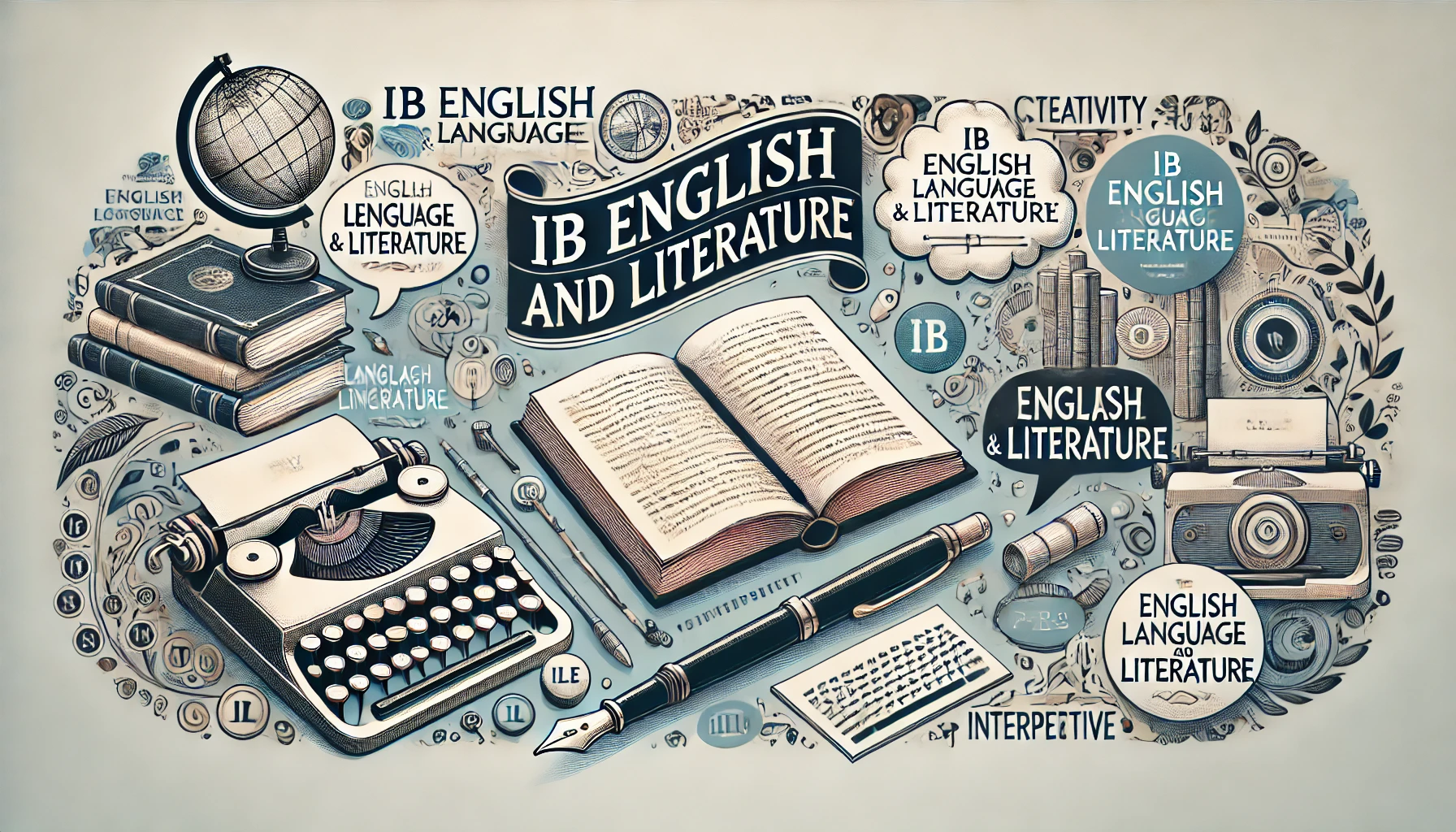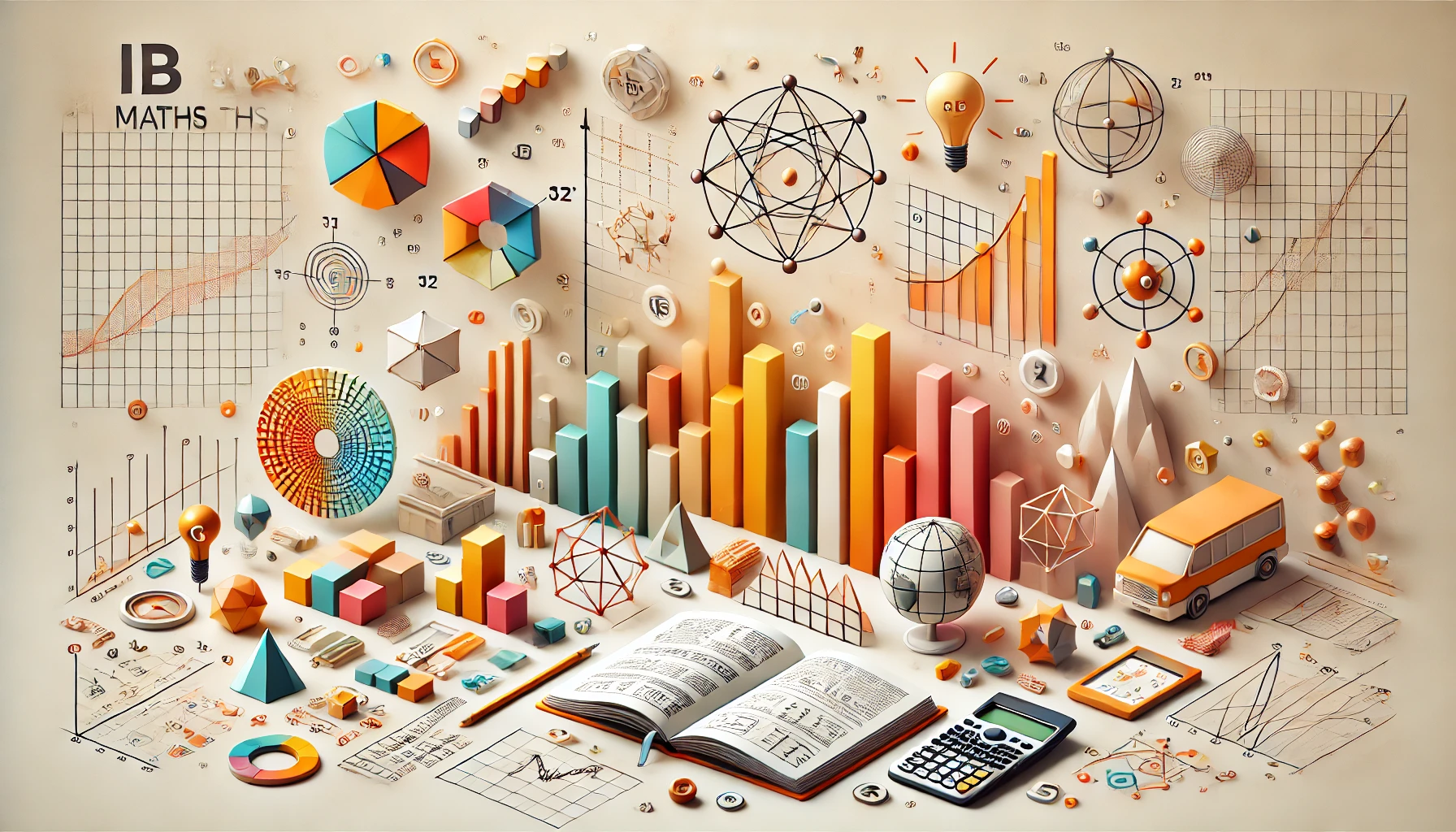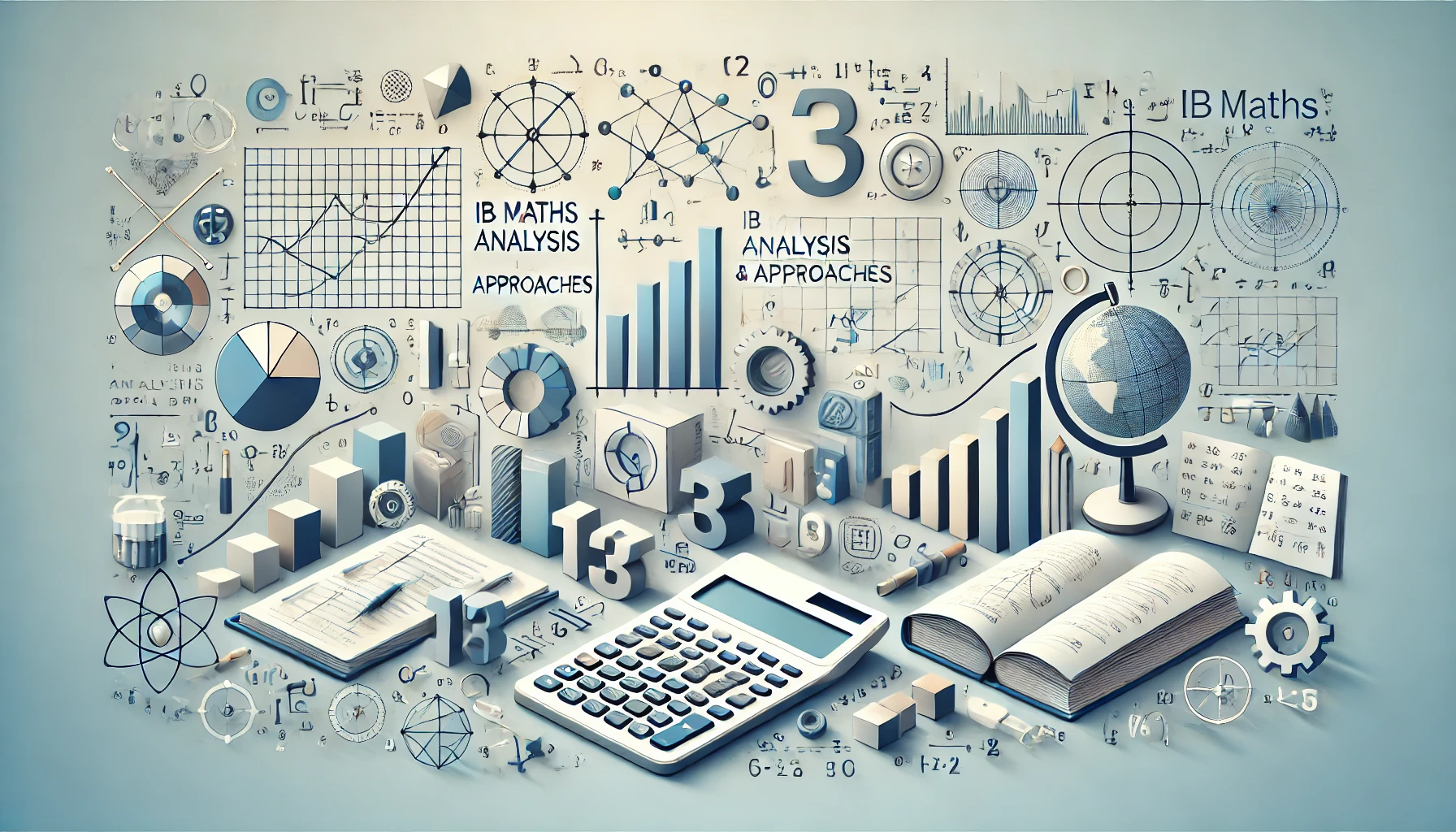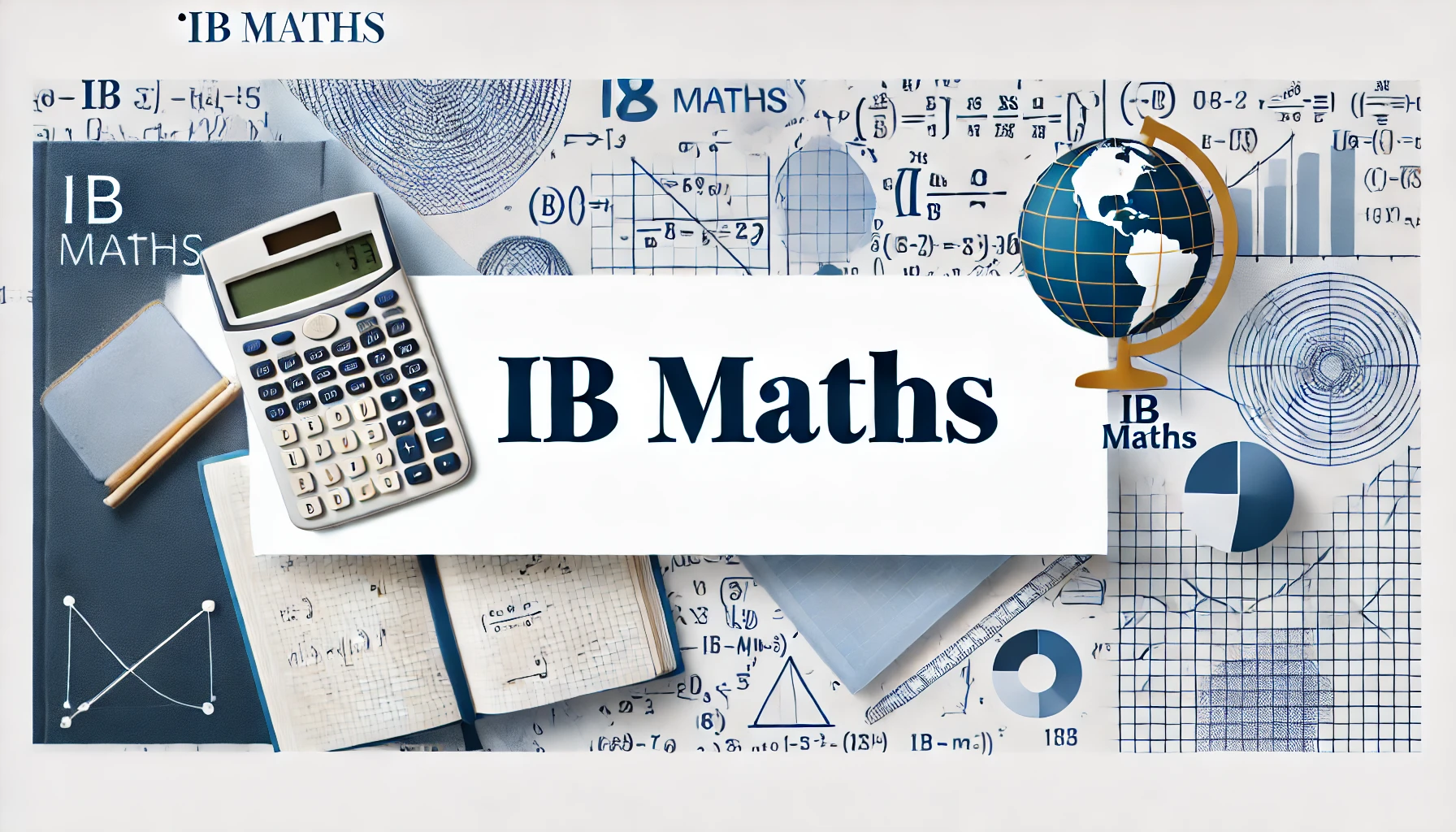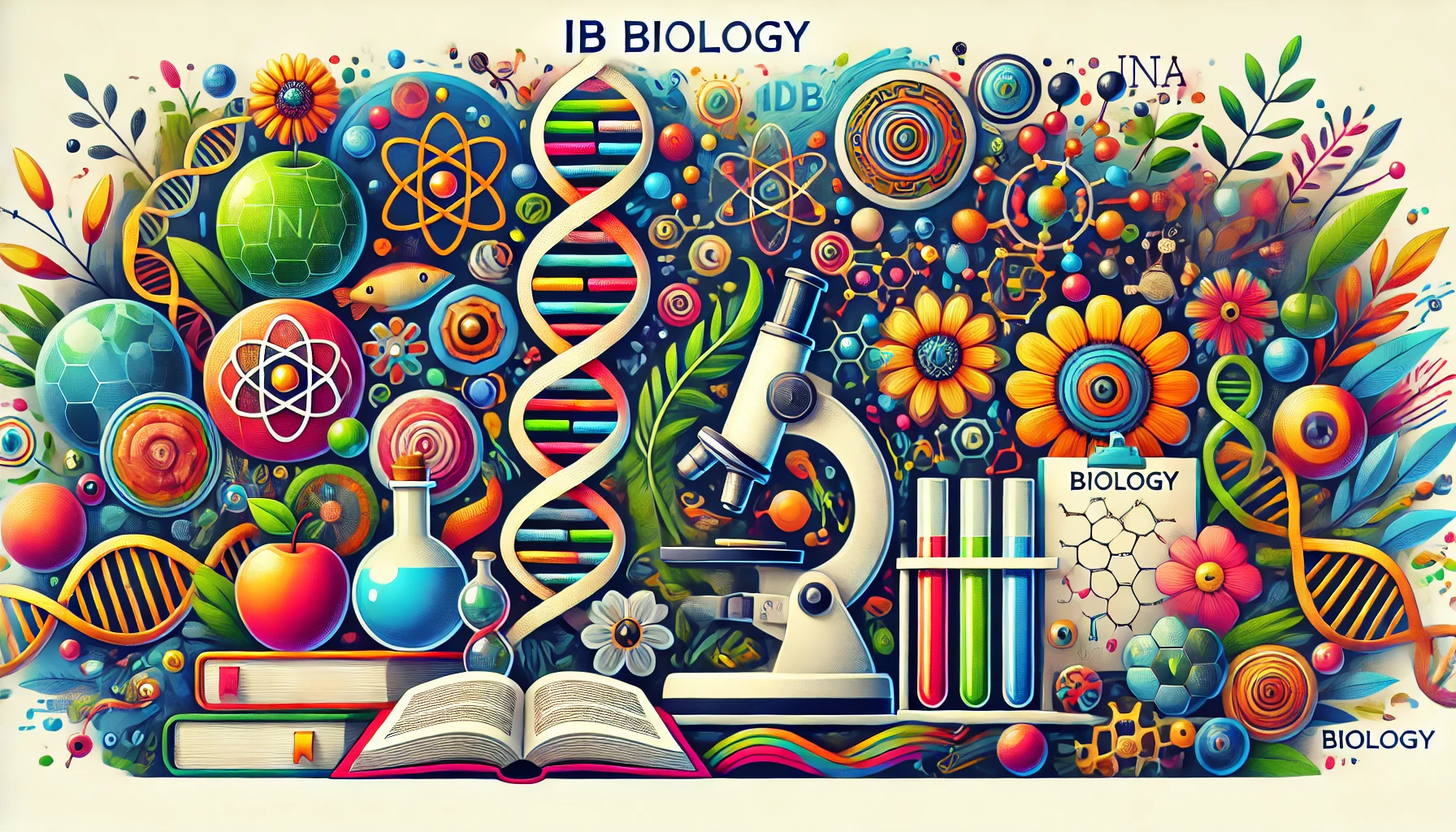
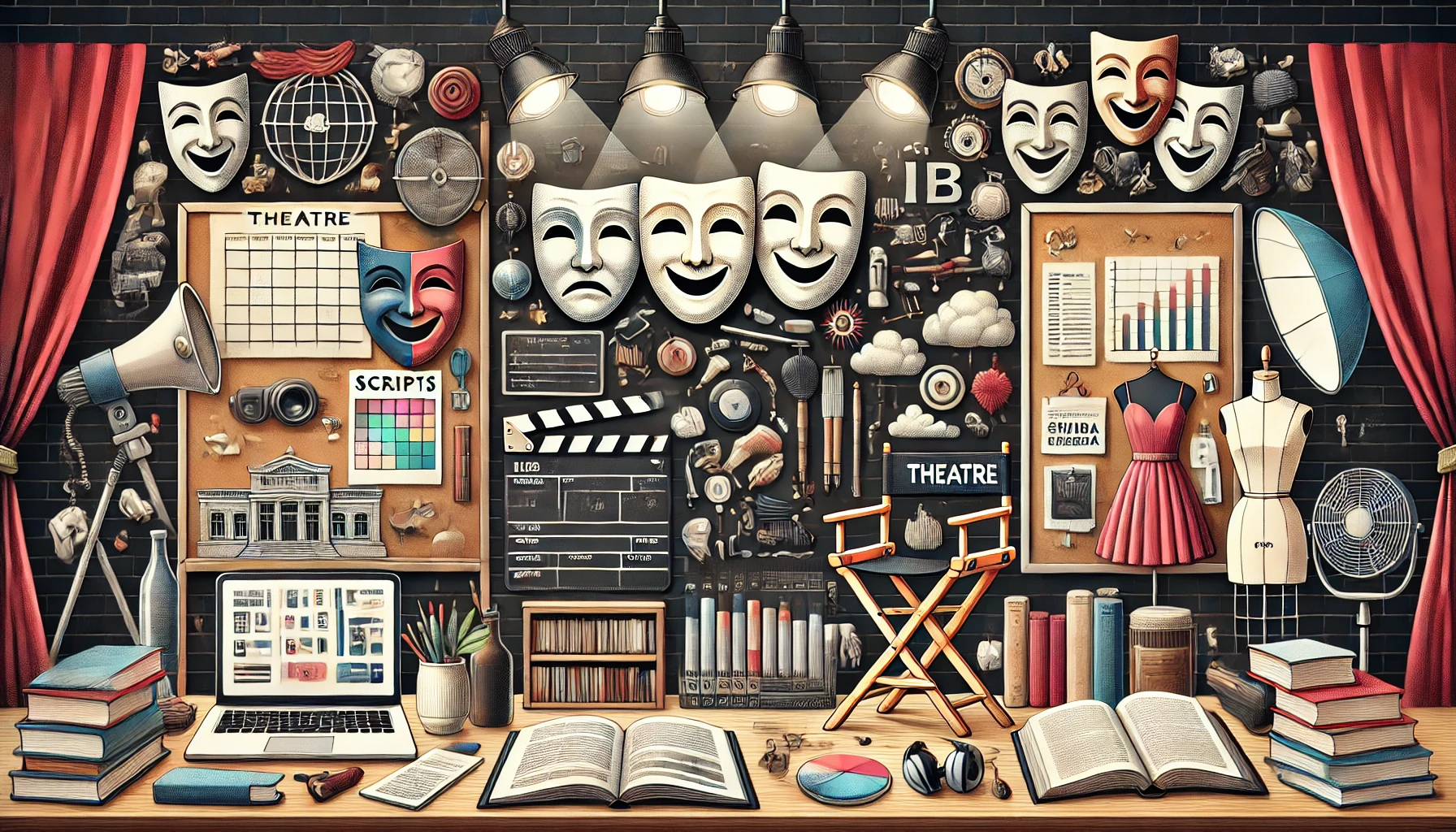
IB Theatre stands out as a dynamic and creative subject that allows students to explore the art of theatre from multiple perspectives—whether as performers, directors, designers or creators.
In this blog, we’ll cover everything you need to know about IB Theatre—from the course structure and assessment components to the skills developed and how it supports students in becoming reflective, confident and imaginative artists.
Course Structure
IB Theatre is a multifaceted, practice-based course that encourages students to become creators, performers, designers, and critical thinkers. It is structured to foster both individual exploration and collaborative engagement in theatre-making, emphasising practical research, creative development, and reflective evaluation.
Students can choose to study Theatre at either Standard Level (SL) or Higher Level (HL). While both levels cover the same foundational components, HL includes an additional area of study and more in-depth engagement.
- SL requires 150 teaching hours, spread across three core components.
- HL requires 240 teaching hours, which includes an additional component exclusive to HL students.
The course is built around active participation, with students learning through doing—researching, creating, performing, and reflecting. The structure is designed to develop key skills such as collaboration, imagination, problem-solving, and intercultural awareness.
Here’s a summary of the course structure:
This balanced structure allows students to engage with theatre holistically—combining academic inquiry with hands-on creation and performance.
Staging Play Texts
This component focuses on how play texts are transformed into live performance. Students engage with published scripts, examining how meaning is created by playwrights and how these ideas can be communicated to an audience through performance and production choices.
Students learn to:
- Interpret a text’s themes, characters, and structure.
- Make informed artistic choices related to design, direction, and acting.
- Consider how technical elements—such as lighting, sound, set, and costume—support the overall vision of the theatre-maker.
Throughout this unit, the emphasis is on making purposeful decisions that align with clear artistic intentions. By understanding how scripts move from page to stage, students develop a critical and creative approach to theatre-making and learn to consider the needs and responses of an audience.
💡Learn how each part of the IB grading system impacts your final diploma score.
Exploring World Theatre Traditions
In this component, students immerse themselves in the rich diversity of global theatre practices. The aim is to explore a tradition they are unfamiliar with—both academically and practically—to better understand how cultural context shapes performance.
Students engage in:
- Research: Investigating the history, conventions, and significance of a specific theatre tradition from a particular culture or time period.
- Practical Exploration: Physically experimenting with performance elements such as movement, voice, gesture, and staging unique to the chosen tradition.
- Critical Reflection: Analysing how performance choices are influenced by cultural beliefs, societal roles, and historical developments.
By working through this component, students gain:
- A deeper appreciation of theatre as a global art form.
- Insight into unfamiliar aesthetics, performance techniques, and cultural values.
- A broadened perspective as both practitioners and audience members.
This topic strongly supports the IB’s goal of promoting international-mindedness by encouraging students to engage respectfully and meaningfully with diverse artistic traditions.
Collaboratively Creating Original Theatre
This component focuses on the process of developing and performing original theatre work as part of a creative ensemble. Students take on the role of theatre-makers, working collaboratively from a chosen starting point—such as a theme, image, object, or text—to devise a completely original piece of theatre.
Key learning experiences include:
- Formulating Intentions: Establishing what the ensemble wants to communicate to an audience and why.
- Devising and Experimentation: Exploring ideas through improvisation, rehearsal, and collaborative development.
- Integrating Elements: Combining performance and production techniques—such as lighting, movement, sound, and set design—to bring the piece to life.
This process is highly student-driven, requiring teamwork, negotiation, and mutual support. Through ensemble work, students:
- Strengthen their communication and leadership skills.
- Experience the creative power of collaboration.
- Learn how to reflect critically on group processes and artistic outcomes.
The final product is a fully realised performance that embodies the collective vision and intentions of the student ensemble.
Performing Theatre Theory (HL Only)
This component challenges students to bridge the gap between theoretical ideas and practical performance. It involves researching the work of a theatre theorist and then applying their ideas to create a solo piece that demonstrates a clear understanding of the theorist’s principles in action.
Students are expected to:
- Conduct In-Depth Research: Investigate a theorist’s background, beliefs, and contributions to theatre practice.
- Identify Key Concepts: Select a specific aspect of the theory that can be practically applied in performance.
- Create a Solo Theatre Piece: Develop, rehearse, and perform a 4–7 minute solo work that embodies the chosen theoretical ideas.
- Reflect Critically: Evaluate how effectively the performance demonstrates the selected theory and articulate their artistic choices.
This component:
- Deepens students' intellectual engagement with theatre.
- Encourages rigorous artistic experimentation.
- Supports the development of independent, research-driven practice.
By combining scholarship with creativity, HL students come to understand how abstract ideas can be transformed into compelling theatrical expression.
💡Find out why you may want to consider a qualified IB teacher as your tutor.
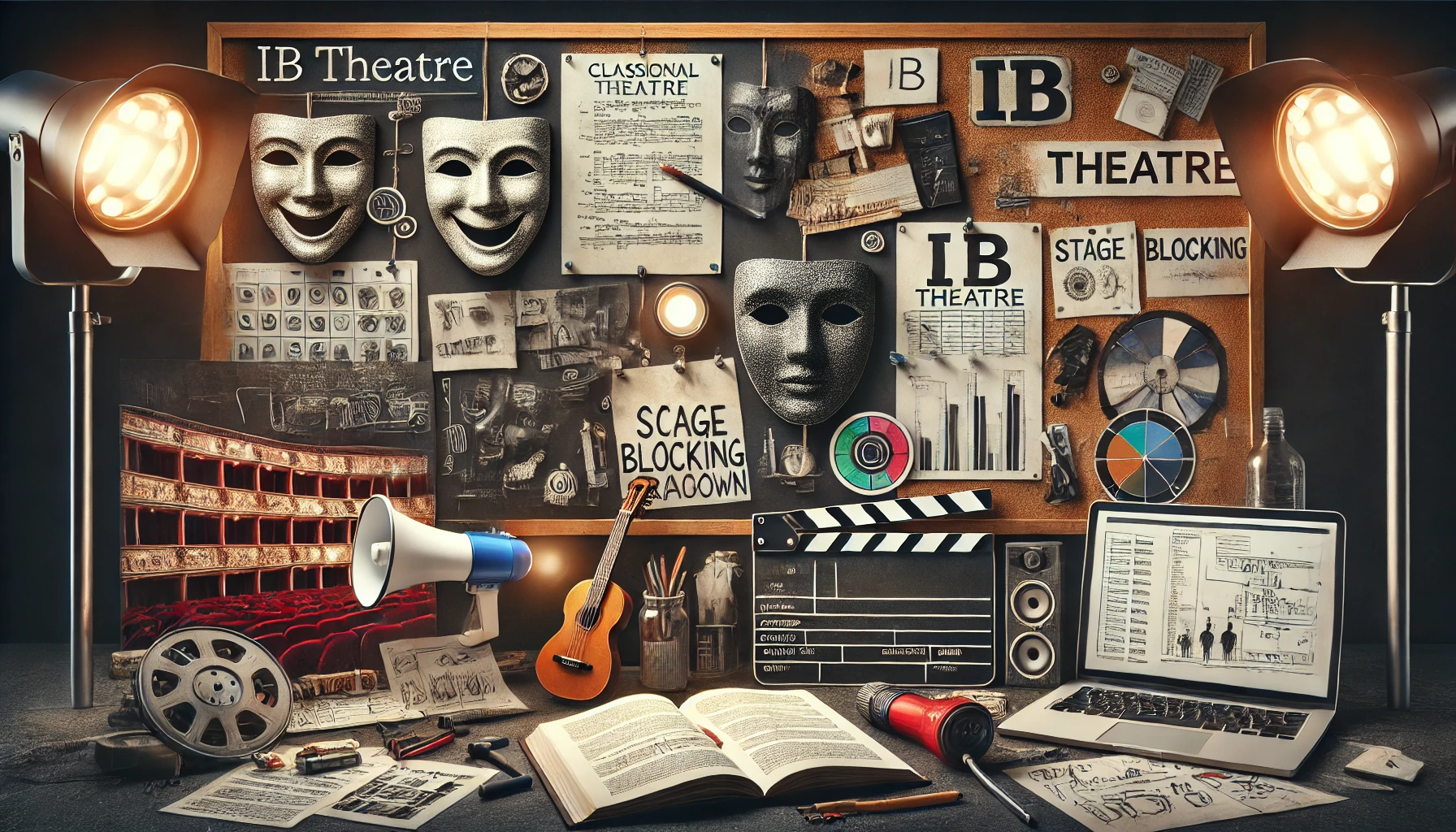
Skills and Techniques Developed in IB Theatre
Throughout the IB Theatre course, students engage in a holistic learning journey that cultivates both artistic and personal growth. The programme is designed to develop well-rounded theatre-makers who are confident, imaginative, analytical, and internationally minded. The learning is grounded in practical exploration, creative collaboration, and critical reflection.
Here are the core skills and techniques students will develop:
Performance and Production Skills
- Acting and physical theatre techniques
- Use of voice, movement, gesture, and space
- Application of design elements such as lighting, sound, set, and costume
- Staging techniques and spatial awareness
- Understanding the role of the director, performer, and designer
Research and Inquiry
- Conducting both academic and physical research into theatrical practices and traditions
- Investigating world theatre forms through active participation
- Inquiring into the work and ideas of playwrights, theorists, and practitioners
- Applying historical, cultural, and theoretical contexts to inform creative choices
Creative Development
- Generating original ideas from a chosen stimulus
- Formulating artistic intentions and experimenting with various approaches
- Collaborating effectively with peers to devise original theatre
- Adapting and refining ideas through rehearsal and feedback
Presentation and Communication
- Presenting theatre work to live audiences with clarity and purpose
- Communicating ideas visually, aurally, and physically
- Structuring and delivering research presentations
- Using multimedia and documentation to support creative work
Critical Thinking and Reflection
- Reflecting on the creative process and performance outcomes
- Evaluating artistic decisions and their effectiveness
- Integrating feedback from peers, teachers, and audiences
- Connecting theory to practice—particularly in the HL solo performance
Intercultural Understanding
- Engaging with diverse global theatre traditions
- Recognising and appreciating the cultural significance of different performance forms
- Developing an internationally minded perspective through exposure to a wide range of theatrical styles and contexts
By the end of the course, students not only become more capable theatre practitioners but also more confident communicators, empathetic collaborators, and reflective learners—skills that extend far beyond the stage.
💡Check out these five key habits and evidence-based strategies of high-achieving students in the IB.
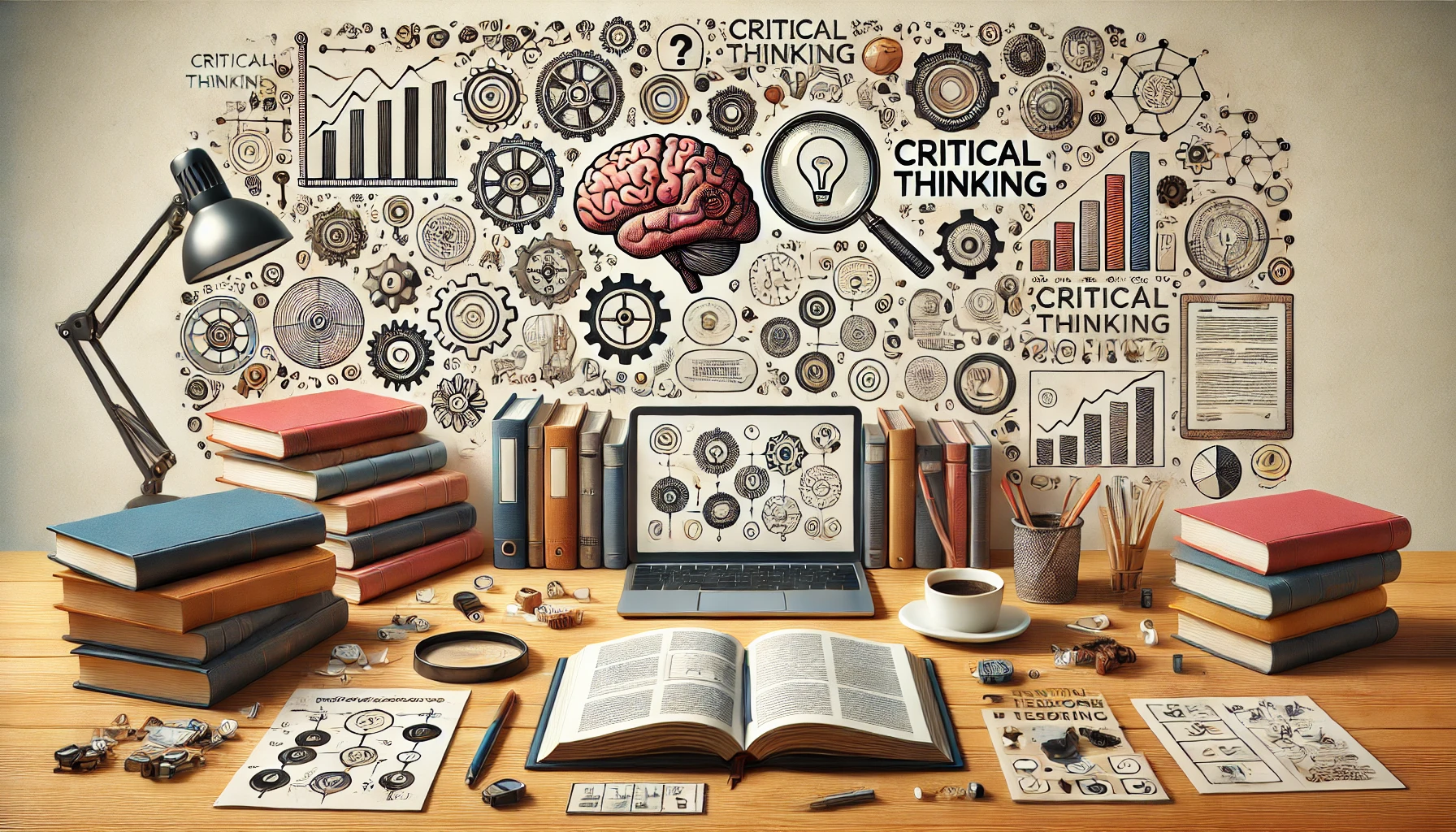
Internal Assessment: Production Proposal
The Internal Assessment for both Standard Level (SL) and Higher Level (HL) IB Theatre students is the Production Proposal. This task challenges students to engage deeply with the process of interpreting and planning the staging of a published play text. It allows them to step into the role of a theatre-maker—imagining how they would bring a script to life for an audience.
What Is Involved?
Students are required to:
- Choose a published play text they have not previously studied in class.
- Develop a vision for how the entire play could be designed and staged.
- Consider and articulate the intentions behind their creative choices—both in terms of performance and production.
- Present their ideas in the form of a written production proposal, supported by visual materials.
Submission Requirements
- A production proposal totalling a maximum of 12 pages, including images and diagrams.
- The written text must not exceed 4,000 words.
- A list of all sources used must be included.
What Is Being Assessed?
The Production Proposal is designed to assess a student’s ability to:
- Inquire into a play text and interpret its meaning.
- Develop clear and imaginative theatre-maker intentions.
- Explore how production and performance elements—such as direction, acting, staging, and design—can be used to fulfil those intentions.
- Communicate ideas clearly and effectively through a well-structured proposal.
Weighting
This task not only allows students to demonstrate their creative vision but also encourages them to think critically and practically about how to transform written text into a compelling live performance.
External Assessment Overview: IB Theatre
The External Assessment in IB Theatre consists of two (SL) or three (HL) components that are submitted externally to the IB for evaluation. These tasks are designed to assess a range of theatre-making skills: from research and analysis to collaborative creation and performance.
Breakdown by Level
Standard Level (SL)
Higher Level (HL)
What Is Being Assessed?
All components of the external assessment are designed to measure achievement against the following Assessment Objectives:
Each external task targets these objectives through different lenses—cultural exploration, ensemble creation, and theoretical application.
Why These Assessments Matter
- The Research Presentation encourages global engagement and intercultural understanding—core values of the IB—by requiring students to study theatre beyond their own experience.
- The Collaborative Project fosters teamwork and creativity, simulating real-world ensemble practice and demanding authentic communication of ideas.
- The Solo Theatre Piece (HL only) develops deep theoretical knowledge and independence, pushing students to translate complex ideas into compelling solo performances.
These assessments do not involve traditional exams but are instead performance-based and portfolio-driven, allowing students to demonstrate skills in authentic and varied ways.
Tips for Success in IB Theatre
We have spoken to our tutors and summarised their advice about how to succeed in IB Theatre—both throughout the course and in the final assessments. Whether you're aiming to deepen your performance skills, improve your creative thinking, or master the research components, these tips will help you make the most of the subject.
- Engage physically and creatively: theatre is a physical and practical subject. Get involved in workshops, rehearsals, and performances as much as possible. Learning happens through doing—so be active, not just analytical.
- Start with clear theatre-maker intentions: whether you’re designing a set or performing a role, always know why you’re making a particular artistic choice. Your intentions drive your creative direction and are essential for all assessments.
- Keep a Process Journal: document your journey, from initial ideas to final reflections. This helps you track your development and provides strong evidence for your evaluation components in both internal and external assessments.
- Explore beyond your comfort zone: choose unfamiliar world theatre traditions and theorists when possible. The course rewards intercultural understanding and exploration, so show that you’re willing to take intellectual and creative risks.
- Work collaboratively—and reflectively: teamwork is at the heart of IB Theatre. Communicate openly with your group, listen to others, and be flexible. After each collaborative experience, reflect honestly on what worked and what could improve.
- Be thorough with research: whether for the Research Presentation or the Solo Theatre Piece, strong academic and practical research is key. Look for both primary and secondary sources and always cite them correctly.
- Think visually and spatially: theatre is a visual medium. When designing your Production Proposal or Collaborative Project, think carefully about how space, light, movement, and sound contribute to meaning.
- Respect the word and time limits: be concise and purposeful in your written and recorded submissions. Adhering to word counts and time limits shows discipline and ensures your best ideas shine through clearly.
- Seek feedback and act on it: don’t wait until the final performance or submission to hear feedback. Show your work-in-progress to teachers, peers, and even family, and use their insights to refine your work.
💡Practice papers are key for success! Find out why past papers are the ultimate tool for IB Exam preparation.
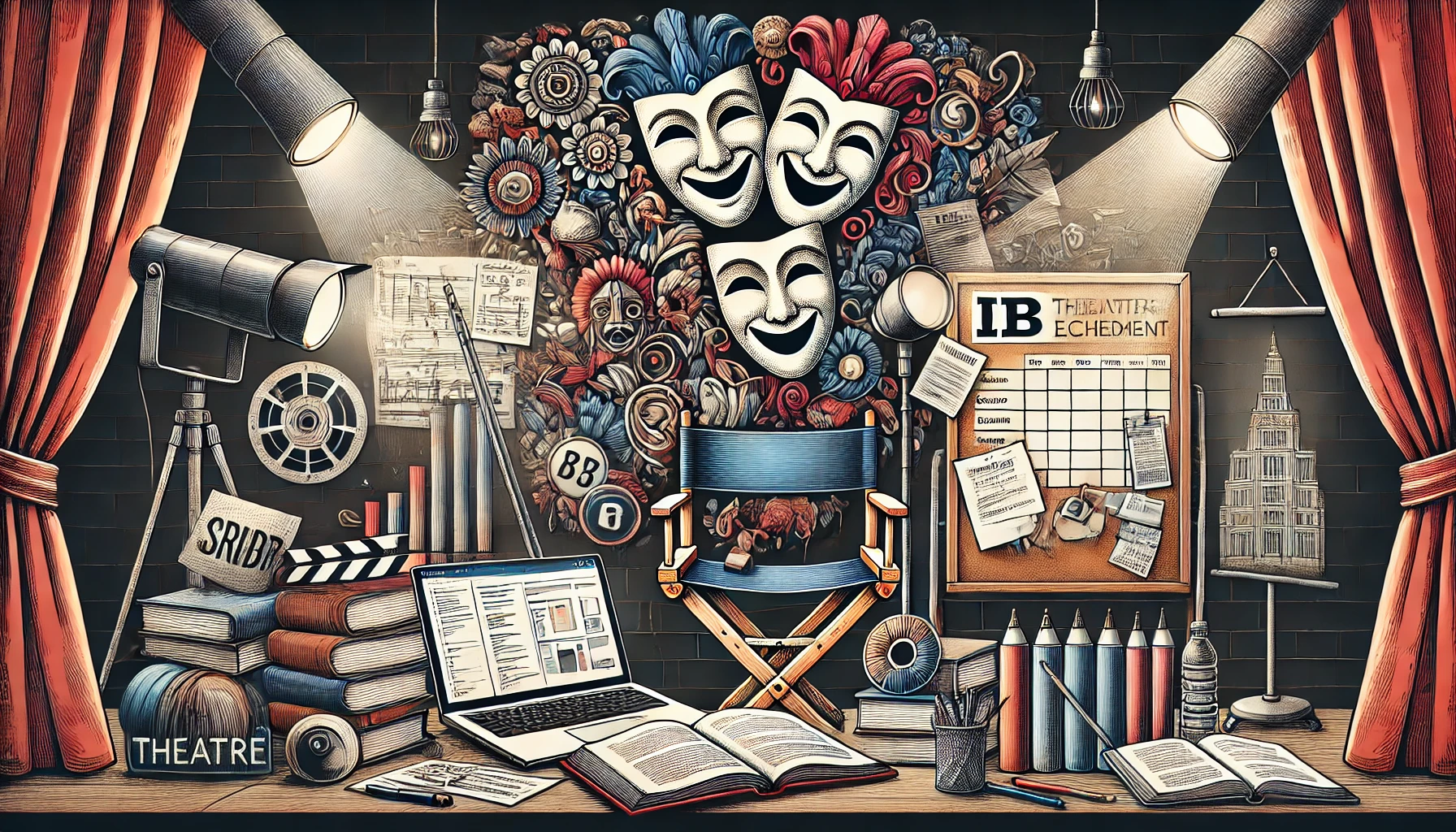
Common Mistakes IB Theatre Students Make
While IB Theatre is a rewarding subject, there are some common pitfalls students should avoid:
- Focusing Too Much on Performance: Some students prioritise acting over research, design, and reflection. Success in IB Theatre requires a balance of practical and theoretical engagement.
- Weak Artistic Intentions: Without clear theatre-maker intentions, performances and proposals can feel unfocused. Always link your creative choices to a specific purpose or message.
- Superficial Research: Relying only on general sources or failing to cite references weakens assessments like the Research Presentation. Deep, well-documented inquiry is essential.
- Neglecting Reflection: Students often overlook the importance of evaluating their work. Regular reflection helps track progress and strengthens your final evaluations.
- Poor Time Management: Leaving devising, documentation, or rehearsals to the last minute leads to rushed and underdeveloped work. Start early and plan carefully.
Frequently Asked Questions about IB Theatre
Do I need acting experience to take IB Theatre?
No prior acting experience is required. IB Theatre is designed to develop your skills from the ground up, whether you’re a performer, designer, or director. Enthusiasm, creativity, and a willingness to collaborate are more important than previous training.
What’s the difference between Standard Level (SL) and Higher Level (HL)?
Both SL and HL students complete the same core components, but HL students engage in greater depth and complete an additional assessment task—the Solo Theatre Piece—which involves applying theatre theory to performance.
How is IB Theatre assessed?
Assessment is based on a combination of internal and external tasks, including a production proposal, research presentation, collaborative project, and for HL students, a solo theatre piece. There are no traditional written exams—assessments are practical and portfolio-based.
Do I have to perform on stage?
While performance is a key part of the course, IB Theatre also values design, direction, and production. Students can choose to focus on various aspects of theatre-making depending on their interests and strengths.
Is getting a 7 in IB Theatre hard?
Achieving a 7 requires consistent effort, creativity, and strong critical reflection. While it’s not impossible, students must engage deeply with both the practical and theoretical sides of theatre, and manage their time and documentation well.
How does IB Theatre help with university and careers?
IB Theatre builds transferable skills like communication, collaboration, creativity, and critical thinking. Whether you're pursuing performing arts or another field, the course helps develop confidence and an international mindset valued in many disciplines.
Final Thoughts
IB Theatre is more than just a subject—it’s a transformative journey that blends creativity, critical thinking, and cultural exploration. Whether you dream of a career in the performing arts or simply want to build confidence and communication skills, this course offers something valuable for every student.
By engaging with world theatre traditions, creating original works, and reflecting deeply on the artistic process, you’ll grow not only as a theatre-maker but also as a thinker and global citizen. With commitment, curiosity, and a willingness to take risks, success in IB Theatre is entirely within reach.

